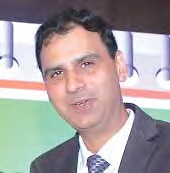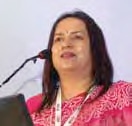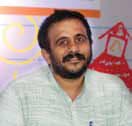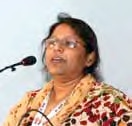
Dr Vandana Lulla,
Director, Podar International School
Blended learning leads to a much more efficient system of education
Blended learning is a concept where there is a complete reversal of the learning process. The concept of the classrooms gets flipped. The child is no more a passive listener in the class, rather he is an active participant. The style of teaching in class first and then following it up at home is the general norm, but with blended learning the teacher has to record her lesson without audience.
Imagine teaching in an empty room, recording the lesson and posting it to the students. The student learns and understands at home and comes back to you and challenges you. So, blended learning is two forms of teaching and learning. The first form comprises of face to face learning and second comprises of technology like mobile, satellite TV, video conferencing, etc.
The aim of the bended learning is to create a generation of students who are in tune with today’s realities. This form of education seeks to create independent learners; it challenges the teachers because you already have very brilliant audience in the classroom. Blended learning creates a lot of learning engagement to make sure that the concept gets understood by the child at the end.
In the current education system, Children are not allowed to think out of the box and teachers just share information and dump it on the children. The process should be reversed so that blended learning provides practical opportunities for learner and teachers to make learning independent, useful, sustainable and evergreen.
It is planned; purposeful management of student learning and making sure that you enhance the experiences of learning in classrooms. When you use animation, video and sound with this flipped classroom, the child can be anywhere. He does not need the teachers presence at all times. He has to rely on his own mind. This automatically leads to an improvement in the quality of the learning environment. This style of teaching facilitates the creation of active learns and gets rid of passive learning.



























